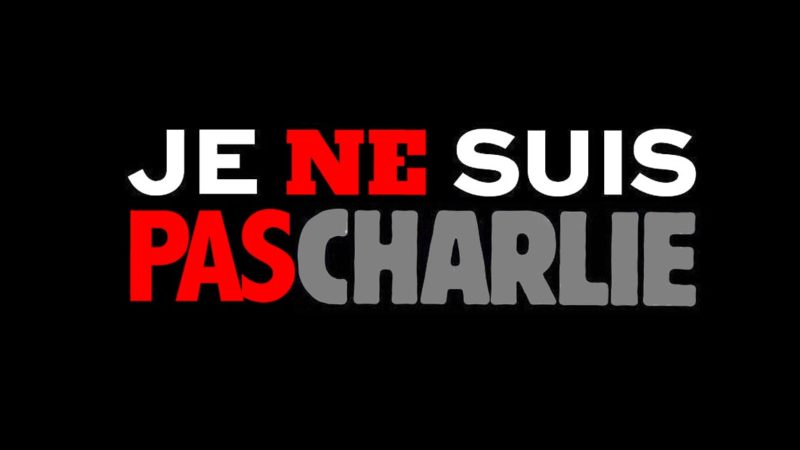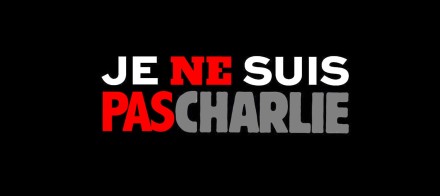

In the hours after the murder of 10 journalists and 2 police officers in Paris, my inbox has been popping with strident messages in defence of free speech. They come from bloggers and columnists, from left and right. This is perhaps the only issue on which Paul Goodman and Emma Burnell stand united. We must, we are told, stand in solidarity with the people who were massacred. ‘I am Charlie Hebdo’ has become a viral sensation across the world. We are told we need to decide which side we are on, to defend free speech or give in to tyranny, to choose, as Alex Massie puts it in the Spectator, ‘between civilisation and barbarism,’ or ‘modernity and a kind of fanaticism we’ve known in our own past’.
I’m very uncomfortable with this kind of language. Despite its championing of freedom and its talk of modernity, there is a deep-rooted authoritarianism behind it. First of all it assumes that ‘our’ civilization is a good thing which must be defended at all costs, that the distribution of power and wealth in our society is right, that our biggest problems come from enemies outside. Secondly, it tries to construct a set of absolute moral polarities, suggesting we possess a single ‘way of life’ which is in danger. It subjugates our differences to an artificial unity which can only be imposed by an elite or the state – it’s that which makes it right wing. The assumption that ‘we’ share a common set of values which differs from our enemies stops us from understanding the particular circumstances which shape our lives and actions. This language of absolute moral opposites is uncivil and strident, with a totalitarian edge. What if your idea of civilization isn’t mine?
To explain what happened in Paris we need to be more concrete, more specific. I don’t think the murders of 12 journalists in Paris was an attack on free speech. I don’t think the murderers wanted to turn France into a Muslim country. Their violent actions were driven by an exaggerated and irrational sense of humiliation and victimhood. The journalists at Charlie Hebdo believed they were attacking an assertive global religion. But Charlie Hebdo is not a samizdat publication dangerously exposing the brutality of a totalitarian state. It did not stand up for freedom or democracy. Satire’s strength comes from its capacity to expose the hubris of those who claim to be great. In contrast, Charlie Hebdo wanted to provoke and humiliate Muslims who, while in some places are powerful, in France feel victimised and powerless. Their frenzied violence was a sign of the killers’ belief in their weakness not their strength.
The murder of 12 journalists in Paris was a disgusting crime, an act which should be condemned with equal force as the killing of every other man or woman who does not threaten the perpetrators with violence. My response is sympathy for the family and friends of the dead and hope that the killers are quickly punished, but not solidarity. Of course, the magazine should have the right to publish what it did. I support the absence of legal restrictions on many things which I believe are stupid, immoral and harmful, just as I support the use of the state’s capacity to use force against people who violently stop them. In the case of Charlie Hebdo’s cartoons, I’d rather they weren’t published. That isn’t because I think we should give in to the threat of violence, but because they cause people harm without achieving any good.
For left-liberals, the kind of people who make up Labour activists, that view shouldn’t be controversial. We don’t believe people should deliberately set out to harm others. We should be non-judgemental about what harm is (one person’s harm is another person’s pleasure), so should be able to imagine how a cartoon about a religious leader causes damage. But, because legal prohibition is itself a brutal form of violence, we should oppose using the power of the state to stop it. There are many things we can condemn but should not ban.
But too many on the left have been seduced by a right-wing language of absolute moral struggle. It is a language invented during the McCarthy era and Cold War to keep conservatives in power, and now used to talk about Islam. Something funny happens when it comes to Muslims and free speech. We, the left in particular, seem so desperate to prove we’re on the side of freedom against tyranny, we confuse what should be legal with what is right. We’re told that we need to do everything we are allowed to – however offensive it is – otherwise we’re accused of being appeasers (as I will be for this article). We forsake our sense of solidarity with those who feel victimised for the sake of a wrong-headed moral stridency. Charlie Hebdo’s defence was that if could offend, it must. We don’t have the same trouble in other spheres of life. I don’t think adultery should be banned, but that doesn’t mean I should sleep with someone else’s wife.
The attack on Charlie Hebdo was a heinous crime, not an act of war. The response to it should be to combine good policing with a confident civility. Despite occasional moments of terror, we – unlike the people of Syria or Afghanistan – should stop pretending we are under attack. Compared with other causes of unnecessary mortality, relatively few people die in Europe from political violence, Islamist or otherwise. We need to remember that our society is not only held together by law and rights. It also depends on practical civility, on our willingness to converse with respect with people who don’t share all our beliefs. In Europe, free speech is not under threat. Instead of championing supposed liberal civilisation against its alleged enemies, we should treat those we live amongst with civility. Here, the danger is not Islam or Islamism, but the assumption that people who are different from us cannot be our friends.




More from LabourList
‘Energy efficiency changes must work for older private renters’
‘Labour’s creative destruction dilemma’
Economic stability for an uncertain world: Spring Statement 2026